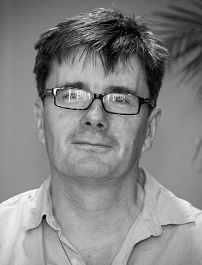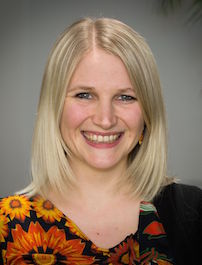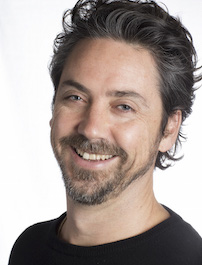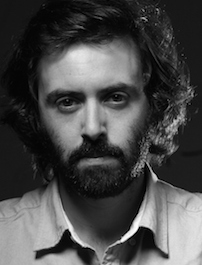Teachers and Streams
Stream 1: Social psychology for society: Working with social identity in clinical, organisational and educational settings
This stream explores how social-psychological theory – with a focus on the social identity approach – can be applied in real-world settings. For example, we will examine how social identity can be harnessed to enhance physical and mental health, motivation and leadership, and learning. This stream will also discuss how to design, implement, and assess social psychological interventions.
 |
PROFESSOR ALEX HASLAM
The University of Queensland
Alex Haslam is Professor of Social and Organizational Psychology and Australian Laureate Fellow at the University of Queensland. His research focuses on the study of group and identity processes in organizational, social, and clinical contexts. Together with colleagues, Alex has written and edited 11 books and published over 180 peer-reviewed articles on these topics. His work with Michelle Ryan on the Glass Cliff was identified by the New York Times as one of the ‘Best 100 Ideas’ of 2008, and in 2013 his book The New Psychology of Leadership (co-authored with Steve Reicher and Michael Platow) won the International Leadership Association’s Outstanding Leadership Book Award. He is a Senior Fellow of the Canadian Institute for Advanced Research and Fellow of both the Association for Psychological Science and the Academy of Social Science.
|
 |
DR TEGAN CRUWYS
The University of Queensland
Tegan Cruwys is a Lecturer at the University of Queensland and a practising Clinical Psychologist. Dr Cruwys completed her PhD at the Australian National University before moving to Brisbane in 2012 to take up a postdoctoral fellowship. Dr Cruwys’ research is at the intersection of social, health and clinical psychology, with a broad focus on how our social relationships shape our physical and mental health. For example, her previous research has included an examination of how social identification facilitates depression recovery and prevents relapse, and how social influence shapes disordered eating behaviour. |
Stream 2: Making moral judgements: Exploring the who, the how, and the what
People make decisions on a daily basis, and many of these have moral implications. In this stream we will explore the basis on which people form moral judgments and the kinds of intuitions that may shape these judgments. We will then examine whether and how moral decision making operates beyond the domain of humans, examining its implications for reasoning about animals and our environment more broadly.
 |
DR BROCK BASTIAN
University of New South Wales Brock Bastian received his PhD in social psychology from The University of Melbourne in 2007. He was awarded a University of Queensland postdoctoral fellowship followed by an Australian Research Council postdoctoral fellowship for his work on dehumanization and morality. In 2014 Dr Bastian received ARC Future Fellowship and also joined the University of New South Wales. His research broadly focuses on pain, happiness, and morality. |
 |
DR SIMON LAHAM
University of Melbourne
Simon Laham is an experimental social psychologist who studies moral judgment and social influence. After receiving his PhD from UNSW, he worked as a post-doctoral researcher at the Universities of Oxford and Melbourne. He is currently Senior lecturer in Psychological Sciences at the University of Melbourne and Director of the Melbourne Moral Psychology Lab. |
Stream 3: The psychology of close relationships: Structure, functions and processes
Human beings have fundamental needs for love and security. People in supportive, loving relationships feel healthier and happier with their lives, and are less likely to suffer from mental or physical health problems. Indeed, most problems that individuals raise with mental health professionals, even family and friends, concern relationship issues such as loneliness, betrayal, jealousy, conflict, guilt, forgiveness, and loss. The aim of this stream is to examine empirical research on relationship issues, backed up by strong, evolutionary and social psychological theories, to better understand how relationships begin and are maintained, why they may fail, and how they might be repaired.
 |
PROFESSOR JULIE FITNESS
Macquarie University
Julie Fitness is an evolutionary-social psychologist who joined the Psychology Department at Macquarie University in 1991. Her research program has focused primarily on the features and functions of emotions within interpersonal contexts, and on betrayal, revenge, and forgiveness in personal relationships. Along with publishing widely on these topics, she has addressed many community groups on topics such as the emotionally intelligent marriage, and the causes and consequences of familial rejection. She is a Fellow of the Association for Psychological Science and was an Associate Editor of Psychological Science between 2010 and 2012. She is currently Editor of the journal Personal Relationships. |
 |
DR GERY KARANTZAS
Deakin University Gery Karantzas is a Senior Lecturer in the School of Psychology and Director of the Relationship Science Lab at Deakin University. He is the past convenor of the APS Psychology of Relationships Interest Group. Gery’s research focuses on understanding the formation and maintenance of couple and family relationships. His research has been funded by the NHMRC, ARC, and beyondblue. Gery has received national honors from the APS and OLT for his research and teaching. He is on the editorial boards of Personal Relationships, the Journal of Social and Personal Relationships, and is a guest editor for Current Opinion in Psychology. |
Details
Dates: 31 January – 5 February, 2016
Venue: Deakin University Warrnambool Campus, Victoria
Registration Cost: A$350
Expression of Interest: https://acu.qualtrics.com/SE/?SID=SV_9nriBHxmQVeym5n
Expression of Interest Due date: 30 October, 2015
Organising Team: Ana-Maria Bliuc, Nick Haslam, Gery Karantzas, Peter Koval, Diane Sivasubramaniam, Art Stukas, Lucy Zinkiewicz, Anna Klas, and Alexa Hayley.
